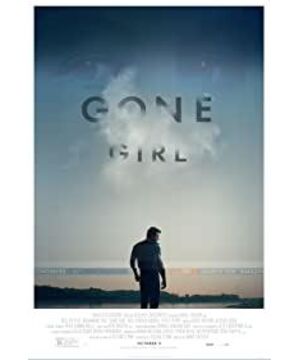Gillian Flynn's novel "Gone Lover" is a marriage-themed thriller and suspense novel. The first half delicately depicts the details of Nick and Amy's acquaintance, love and marriage. In the second half of the story, the novel turns to reveal the truth of the disappearance case. The media, lawyers and other characters contributed to this drama, and were also ridiculed by the author. It took me half a month to watch the first half, and only three days to watch the second half. This does not mean that the first half is not good-looking. The description and discussion of the current situation of marriage in the contemporary American middle class is concentrated in the first half. The author has a sense of humor that makes people sweat, as if stabbing you while smiling. Therefore, the first half cannot be fast-forwarded and must be read carefully. In "Lust, Caution", Eileen Chang used "feeling for a tiger" to describe a woman's feelings for a man, which can be irrational and even become a criminal accomplice. The novel "Gone Lover" is also a story of "playing for the tiger", but the cowardly man is in turn controlled by the powerful woman. At this point, the gender war seems to have reached a new stage.
The film continues the structure and rhythm of the novel. In the first half, from the outbreak of the disappearance until Nick uncovered all the secrets of the "treasure hunt", interspersed with memories in Amy's diary, Nick stood in the light and became the target of public criticism, while Amy hid in the dark and became a beautiful mystery. In the second half, Amy went to the front desk to reveal the truth of the crime. As for the horrific ending, it's better to leave it alone...
I guess David Fincher is a rational, precise, neat guy. Watching his movies, I always breathe a sigh of relief for the pressing plot, because he never stops emotionally for too long, and the hero and heroine transition to the crime scene as soon as they are sweet. Moreover, every seemingly random plot actually buried a "button". So, there isn't a single scene in this movie that's lengthy, and there's not a single plot that's superfluous. The screen serves the plot. The novel opens with a scorching hot sunny day, but the movie changes to a half-dark morning, setting the gloomy tone of the whole story. The soundtrack doesn't steal the show at all, but the key moments can enhance the horror of the whole story, such as the parallel montage of Nick uncovering the mystery and the police finding the diary, using a drum-like soundtrack that makes the heart beat faster.
Since it is necessary to fully serve the plot within two hours, some "sidelines" unrelated to the main plot must be deleted. There is a lot of space in the original book about the interaction between Nick, Amy and their parents. These contents do not seem to be directly related to the disappearance case, but they interpret the causes of their personalities and understand why their marriage has come to this place today. key. But in the movie, only one or two scenes are used to explain the past, without going into depth. Another area that was cut was Amy's "Punishment History," where the victims changed from two to one; Nick had visited Desi twice, but once in the movie. The most intriguing change is in the ending. In the novel, Nick finally took the initiative to accept Amy and became her "accomplice". Nick in the movie was forced to make a helpless choice, and even faced the accusation of his sister's sadness. In contrast, the original novel, which mercilessly ridiculed the media, was completely preserved by the film.
The choice of content to be omitted subtly reflects a certain value judgment of David Fincher. If we say that the point of the novel is "how a dark marriage relationship is created", the film has evolved into "how a perfectionist female genius controls her marriage at all costs".
Amy, the heroine of the movie "Gone Girl," and Mark Zuckerberg in the previous film "The Social Network" are the same kind of person—a lonely genius. They are amazingly intelligent and talented, and have to be harsh in the face of their peers who are far less intelligent than their own. The protagonist's logic is: "If you don't meet my requirements, you've committed a serious crime." I guess this is also a reflection of David Fincher's heart. The vast majority of ordinary people find a sense of security in the interaction and confirm their identity, but Finch has a cold sneer at this. As the old saying goes, geniuses are lonely.
View more about Gone Girl reviews











